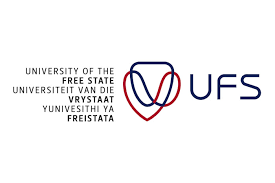University of the Free State: Qwaqwa research conference highlights value of research that is centred on humanity
From socio-political dynamics and creativity in the Basotho language, to the improvement of water conditions in the upper Tugela River and antifungal studies of Cydonia oblonga extracts (known as kwepere in Sesotho) – these are just some of the highlights of the research presented at the UFS Qwaqwa Campus research conference.
With a theme focused on research as a tool for the betterment of humanity, the two-day research conference provided a space for the campus to showcase its research for sustainable development in the Afromontane region and beyond, conducted by academics and postgraduate students alike. The two-day event comprised oral student and staff presentations and sessions, with shorter presentations on the second day.
As global trends continue to challenge society to solve big and immediate problems, there has been a natural turn towards research that can make a lasting impact on local and global platforms. Through student and academic presentations, the conference provided insights into how the UFS is playing an active role in responding to some of these challenges by being outwardly focused in their approaches to problem-solving.
Balancing the sciences, industry, and society
With an intentional focus on interdisciplinarity, the guest speakers – all in different science fields – offered solutions to conducting impactful research through the lens of their own work. Prof Percy Hlangothi is currently an Associate Professor of Physical and Polymer Chemistry at Nelson Mandela University (NMU) and inaugural Director of the Centre for Rubber Science and Technology, a research entity in the Faculty of Science at the same institution. By describing his work, particularly on the production of tyres, he focused on the importance of achieving rapport between the sciences, industry, and society.
The second keynote speaker was Lukhona Mnguni, a governance, politics and development specialist and PhD candidate in Political Science at the University of KwaZulu-Natal. He currently serves as the Head of Policy and Research at the Rivonia Circle. Mnguni focused his talk on the breakthroughs of research as stemming from people, and not academic disciplines themselves. Mnguni issued a hard call towards a reflection of what the intellectual and scholarly quest for knowledge is doing to society, emphasising the need for societal involvement in issues pertaining to crises in society.
Prof Dipane Hlalele, Professor of Education at UKZN and a C2 NRF-rated researcher (2022-2027), was the final speaker for the conference. He anchored his talk on the importance of having philosophical frames behind scholarship, and spoke against approaching rural areas as lacking knowledge, to a stance of mutual understanding of knowledge schemes and models of intervention.
Campus focused on making an impact outwardly
Marking the opening of the conference, Dr Martin Mandew, Qwaqwa Campus Principal, said the campus was trying to punch above its weight and evolve its research and knowledge outputs. “We cannot just be consumers of knowledge and finished products that come from abroad. We have to produce our own knowledge that speaks to our own unique circumstances and makes complete sense of our capacities,” he said.
The conference also served as the launch platform for the campus research strategy. During the launch, Prof Pearl Sithole, Campus Vice-Principal: Academic and Research, said the strategy was centred on five frontiers. “We are trying to align what we do outwardly in terms of impact and are working on ourselves as per the commitments of the strategy. We do this excellently, because we want to advance knowledge – there is no question about that – and we put pressure on each other to do that. It does not mean that it will be easy, but we are going to engineer it such that originality and the advancement of knowledge is happening.”
The conference concluded with a prize-giving session for the best oral student presentations.

